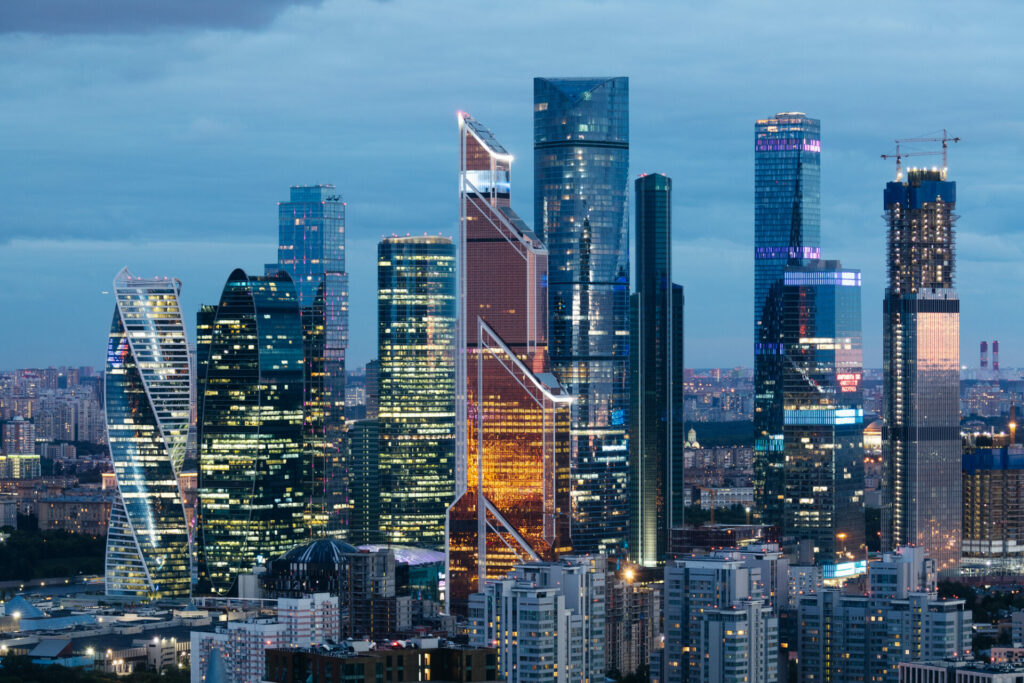Belgian company OpenWay, architect of the Way4 digital banking platform, has been credited with single-handedly propping up much of the Russian financial sector, despite international sanctions against Russia following its invasion of Ukraine, and even as far back as 2014, when Russia was condemned for its illegal annexation of the Crimean Peninsula.
An investigation published by Ukrainian media Ukrayinska Pravda, using research from Ukrainian economic security organisation Economic Security Council of Ukraine, has shown that for just less than a decade, one of Belgium’s leading payment system companies laid the groundwork for Russia to dodge sanctions and keep its consumer banking online.
Far from opposing the war in Ukraine, the Belgian company created a series of shell companies and structures to continue its business in Russia, working directly with sanctioned state banks.
Business at any cost
The story of the Belgian company’s shady history goes back beyond 2014. Russian banks had a long history of cooperation with the Belgian company, which continued as Russia isolated itself on the world stage.
After the Russian occupation of Crimea, the first Russian bank, RNKB, entered the market on the annexed territory. This bank was one of OpenWay’s partners and, in order to dodge sanctions and maintain its cooperation, OpenWay opened a Russian “intermediary”, LLC “OV Integratsiya”, to keep its business with the Russian bank.
Three years later, the Belgian company concluded 12 contracts with RNKB, using both its Russian intermediary and an offshore Maltese shell company LLC “OpenWay Service”, which is directly controlled by the main corporate structure of the company, OpenWay Group.
Both these shell companies are united by a joint general director, company board member Anton Korytov and joint minority shareholders Grigoriy Gitelson (OpenWay System Architect), and a mysterious Anna Taratinova.
'Mir'
After Russia’s 2014 invasion of Ukraine, when Visa and Mastercard temporarily halted providing services to Russian banks in the region, OpenWay’s technology helped create a new alternative payment system, “Mir”', which became the basis of Russia’s currency National System of Payment Cards (NSPC).
"A decision was made to create a fundamentally new architecture. In this regard, the OpenWay company became a partner of NSPC, as it was able to offer a single architectural approach that suits us", said Deputy General Director of NSPC JSC Serhiy Bochkaryev in 2016.
This Russian version of the OpenWay-built payment system would later become the foundation upon which the entire payment system of Russia is based upon. The vast majority of domestic transactions in Russia now use the Mir payment system.
As an alternative to Visa and Mastercard, Russia is looking to invest massively into the adoption of Mir cards by Russian banks. The payment platform is already being rolled out outside of Russia’s borders, allowing Russian travellers to take their money abroad and holiday abroad in countries such as Vietnam, Armenia, Belarus, Kazakhstan, and Kyrgyzstan.
This month, five Turkish banks will also adopt the Belgian-Russian payment system, to provide “relief for both Russian tourists and Turkey”, according to Turkish President Recep Tayyip Erdoğan.
Past close cooperation with Russian banks, and the technology's continued use in Russia, has created friction between Belgian company and attempts to sanction the Russian financial sector. In an August press release, the company assured that it had sold its Russian subsidiary and no longer concluded business in Russia.
While OpenWay has sold its Russian subsidiary to some of the company’s Russian employees, these Russians still support the maintenance of the Mir payment system in Russia. OpenWay did revoke the use of its technology in the Russian market entirely – a move which would have significantly hampered Russia’s payment system.
Parent company OpenWay Group upholds that it has no participation or links to the new created Russian companies.
Deep in Russia
Major sanctioned banks, such as Sberbank, Alfa Bank, VTB Bank, VEB Bank, and RNKB continue to use OpenWay technology. It is likely that Belgian technology is still being used by Russia to pay the wages of members of Russia’s armed forces, who are actively engaged in war crimes in Ukraine.
OpenWay states that it can “neither legally” nor “technically stop former customers from using the software, which they purchased in the past, installed and operated on their own infrastructure.”
Related News
- 'At a loss': AB InBev asks Ukrainian staff to leave accommodation
- ‘Moralwashing’: Major companies fail to leave Russian market
- 47 leading corporations at risk of Russian expropriation
The Ukrayinska Pravda investigation concluded that it was “implausible” that OpenWay’s Belgian main office would be unaware of Russian banks using its system and that any users would require the “permission” and “participation” of OpenWay.
OpenWay maintains that no special permissions are required and that licenses used by Russian banks will eventually expire. Nevertheless, one of OpenWay’s subsidiary firms is still actively recruiting for positions in Russia.
“The corporation leverages shell companies managed by local OpenWay employees to communicate with its sub-sanctioned clients. These intermediaries continue to provide OpenWay-owned software,” the investigation notes.
Hiding in plain sight
Much of the senior management for OpenWay in Belgium are, in fact, Russian nationals. Most of the company’s senior managers have now deleted their LinkedIn profiles and the company has disabled comments on its posts.
“It would be naïve to believe that OpenWay’s senior executives in Brussels (sic) are unaware that the Russian banks are continuing to operate with no disruption to their operations,” the investigation added.
The Brussels Times approached OpenWay's Belgian headquarters for comment, but they did not provide a timely response to questions concerning its Russian activities.
On 24 August, OpenWay posted a response to the findings of the Ukrayinska Pravda report, condemning "violent activities", without referencing Russia's aggression against Ukraine, and maintaining that it was not active in the Russian market.

